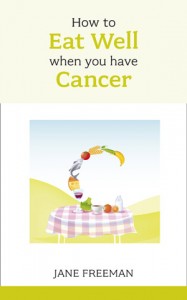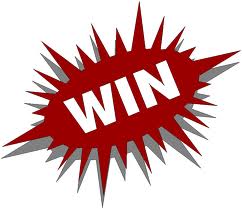
More evidence that low-calorie sweeteners are bad for your health
Studies show that artificial sweeteners can raise the risk of hypertension, metabolic syndrome, type 2 diabetes and heart disease, including stroke.

Engaging with nutrition is one of the most important aspects of cancer treatment that individuals and their families can become involved in.
Enjoying foods which support you before, during and after your treatment will help you feel better, stay stronger, tolerate treatment side effects better, keep up your energy, maintain your weight, reduce the risk of infection and heal and recover as quickly as possible.
During the active stage of treatment, you need what I might call an intense nutritional approach. This isn’t a matter of fad diets or of cramming yourself with special foods, but of good, sound nutrition. Treatment for cancer affects people in many ways, but thinking about it as a kind of marathon event may help you understand what kind of role you play in your nutrition – an active one, I hope.
If you were training for a marathon or planning a long trek up a mountain such as Everest, I am sure you would understand the importance of fuelling your body to help you build up your strength and stamina, and as preparation for recovery from the physical and psychological impacts you were about to endure.
Diet is an area where you can take control
Beating cancer is never easy, whether you are in the throes of treatment or simply living with it in the best way you can.

You can win a copy of Jane's new book How to Eat Well When You Have Cancer – see details at the bottom of the page!
Many people are only too keen to make changes in their diet but aren’t always sure of the best way to go about it. There is a great deal of conflicting advice around and it can all be very confusing.
Some people are convinced that certain foods cause cancer, while others advocate very restricted diets in the interests of a ‘cure’. As diet is one area where people with cancer can take control, it is understandable that they are sometimes eager to make the most of the opportunity.
Equally, if people aren’t eating well and find it all too difficult, this can be a source of concern and guilt. What I want to say to you right from the start is: relax and take it easy. A top oncologist once told me that his advice to patients asking about nutrition was to ‘eat what you fancy’, and while I would add a little detail to it, this kind of spirit is very much what inspires this book.
Food is to be enjoyed and to nourish the body. It’s not some kind of arcane magic that you must get exactly right if you are going to be cured.
Nevertheless, it’s understandable that you may have a lot of questions about eating well when you have cancer. Here’s some of the most common ones:
What foods should I avoid?
The short answer is simple: during treatment, avoid the foods that you can’t tolerate or the foods that may make symptoms worse. For example, a very high-fibre or bulky diet is not the best for someone with a poor appetite who is also experiencing continuing bouts of diarrhoea.
The starting point should be a typical well-balanced diet, with rather more emphasis on high quality protein foods, some grains, at least five to seven servings of fruits and vegetables and some limits on unhealthy fats and sugar.
But if this type of diet doesn’t agree with you, or you are experiencing difficulties eating, it is up to you to work with your clinic and dietitian to find a more workable diet. For example, people with mouth sores may find that some fruits are too painful to eat. People with nausea and diarrhoea may find they just can’t tolerate high-fibre breads and cereals. All this is nothing to worry about, as the treatment phase is just one window of the cancer journey and it doesn’t last for ever.
Should I avoid dairy products if I have a hormonal cancer?
The notion that dairy products are deeply implicated in cancer development is pervasive, but extensive reviews of the scientific evidence have not found any strong links between dairy and breast cancer risks. There are also many benefits to including dairy foods in the diet.
Dairy foods are one of the highest quality sources of protein, far superior to soya equivalents. They are a source of an important amino acid, luecine, which is taken by many athletes to help with strength and muscle weight gain, and this is important during treatment.
Dairy foods are also the best source of bio-available calcium, important for the bones, especially in those who are at risk of osteoporosis – which is all women who have been diagnosed at a pre-menopausal or menopausal age. The conjugated linolenic fats in milk also appear to actually help with weight loss as they promote fat excretion from the body.
The concerns around dairy products seem to relate to a belief that intensive farming methods increase exposure to hormones. This is unlikely to be the case at least in the UK, as bovine growth hormones are banned by EU food authorities.
Other theories have stemmed from population studies comparing Western and Asian cultures (i.e. US and Japanese women), which broadly examined breast cancer rates along with a spectrum of lifestyle and diet differences. One of the reasons proposed for the higher rate of breast cancer in Western women was the dairy intake. However, there are so many more differences between these populations, including levels of fat intake, energy intake, fish intake, activity, genetics and alcohol intake.
Does sugar feed cancer? Should I avoid sugar if I have cancer?
No!!! The idea that sugar somehow ‘feeds’ cancer is neither useful nor correct – sugar, as a form of carbohydrate, feeds every cell in our bodies.
Sugar is a type of carbohydrate. Carbohydrates are an important energy food, and every cell in the body requires glucose or sugar to function. For example, the brain wholly and solely uses glucose or sugar to keep it functioning. A drop in blood sugar can cause feelings of fatigue, dizziness and faintness.
When you eat any kind of carbohydrate (found in desserts, sweetened drinks, fruits, milk, grains and starchy vegetables), the body breaks those carbohydrates down into a range of simple sugars, which are then converted into glucose to be taken into the cells.
However, there are different types or quality grades of carbohydrate foods. There are the wholesome grain type foods, fruits, vegetables and dairy foods which can move more slowly (slow-release or low GI type carbohydrates) and then there are those which are more processed, mixed with higher-calorie, higher-fat snack food type ingredients and typically these are absorbed quite quickly (high GI or fast-release types).
When our diet includes more of the fast-release or high GI types (refined or more processed carbohydrate foods) this requires the body to produce more of the hormone insulin. Insulin is needed to enable the cells to take up glucose from the blood into the muscle cells. However, several spikes of insulin across the day could be a risk factor for cancer as well as weight gain. (Insulin is a growth hormone and promotes fat storage.)
The body is always working to keep our blood sugar levels within a normal ideal range. For an all-round balanced diet, it is best to get your energy needs met by a range of lower GI carbohydrates such as vegetables, fruit, wholegrains and legumes (beans). At the same time, if you fancy a little bit of luxury chocolate or a slice of delicious home-baked carrot cake, have it. Gosh, you are in treatment for cancer and you should also enjoy your food!
One other point to bear in mind is that you can’t always judge your carbohydrate needs in cancer by your normal carbohydrate needs. So, when considering your overall carbohydrate intake, again do discuss your individual needs with your doctor or dietician if necessary.
Can I drink alcohol?
A small glass of wine or sherry before a meal can help stimulate your appetite and make a meal a more relaxed and enjoyable occasion.
The emphasis, however, is on ‘small’. Alcohol has been linked with an increased risk of developing oesophagus, mouth, throat, breast and bowel cancers. As alcohol is high in calories, it may also be a risk factor if it contributes to being overweight.
Current sensible drinking guidelines recommend that:
One unit of alcohol is the equivalent of a small glass of wine (125 ml), half a pint of standard strength beer, cider or lager, or a single measure (25 ml) of a standard-strength spirit.
It is also recommended that people have one or two non-drinking days each week.
If you are taking any medicines, check with your doctor or pharmacist that you may drink alcohol.
Should I only eat organic foods?
The term ‘organic’ is used to describe foods grown without pesticides or herbicides. Organic foods have on occasions been found to be higher in vitamin C and lower in nitrates; however, the comparisons are variable. Farmers who produce organic produce may also help to protect the environment. However, other farmers do this as well but may not have gone to the trouble and expense of obtaining certification.
What is more important than whether the food is organic are the types and amounts of different foods consumed. You are better off eating a corn cob that isn’t organic than eating organic French fries!
Should I stop eating meat?
While it does appear that a diet high in fruit and vegetables is more protective against cancer, during treatment high protein foods such as lean meat and dairy provide your body with more of the important build-up nutrients that it needs for repair, recovery and energy.
Don’t cut out red meat or the like during the treatment, but do try to ensure that the meat you choose is of a high quality and is purchased from a reputable farmer.
After the treatment period, the WCRF UK cancer prevention guidelines recommend an intake of around 500 g or 1 lb 2 oz of cooked meat per week (or 700 g raw). This includes beef, pork and lamb.
In general it is best to avoid processed meat such as processed ham, bacon, frankfurters, salami and some sausages. Cancer-causing substances (carcinogens) can be formed when red meat is preserved by smoking, curing or salting, or by the addition of preservatives.
These substances can damage cells in the body, leading to the development of cancer. Having said that, I would not worry too much during the treatment phase if you are feeling like these sorts of foods on occasions.
Is soya good if I have had breast cancer?
As part of a healthy diet, a moderate intake of soya foods (such as soya milk, tofu, etc.) is considered perfectly acceptable.
However, there is no evidence that soya or phyto-oestrogen supplements prevent or cure any form of cancer. Some studies have indicated that in supplement form phyto-oestrogens may in fact stimulate existing tumour growth and antagonize the effects of some cancer treatment. Therefore soya or phyto-oestrogen supplements should not be taken.
Will eating less fat lower my risk of cancer recurrence?
Although there is no evidence of a direct link between fat intake and an increased cancer risk, evidence suggests that a high-fat diet may increase the risk of breast cancer (in post-menopausal women) and lung cancer, and diets high in animal or saturated fat may increase the risk for colorectal cancer. As high fat consumption can contribute to obesity, and obesity is a strong risk factor for several cancers, you should limit your intake of high-fat foods. This is an important concern if you have a cancer which is associated with weight gain.
Should I juice vegetables and fruit?
On the whole it is much better to eat whole fruit and vegetables than to juice them, because they contain fibre as well as lower amounts of sugar. Some of the natural goodness may be lost in juicing, too, as some vitamins deteriorate quickly once exposed to air, light or knife damage. However, during the treatment it may be easier for you to include your fruit and vegetables as a juice or a smoothie. If you can, try to consume your juice soon after preparation.
If you are trying to contain your weight, you need to remember that juices are much higher in calories than whole vegetables or fruit, which can be a problem if you over-consume.
 We are lucky enough to have 7 copies of Jane’s book to give away. Entering is simple. Check out our twitter page @NYRNaturalNews, follow us & RT the competition message to enter. Winners’ names chosen at random after the competition closes at midnight February 22.
We are lucky enough to have 7 copies of Jane’s book to give away. Entering is simple. Check out our twitter page @NYRNaturalNews, follow us & RT the competition message to enter. Winners’ names chosen at random after the competition closes at midnight February 22.
This competition is now closed: the following Twitter users won a copy of the book: @ELAINEDALE1, @e_GiftShop, @Iterajohn, @LilinhaAngel, @XFilesFanaticus, @gallyqpr, @rachcowling76.
Thanks to all who retweeted and followed us.

Please subscribe me to your newsletter mailing list. I have read the
privacy statement